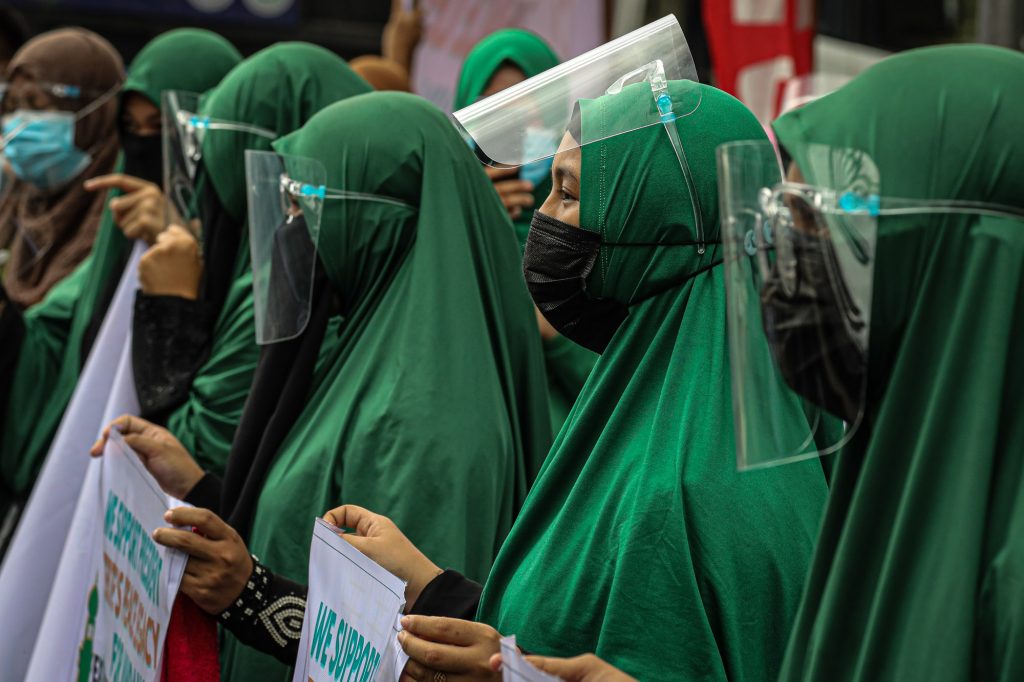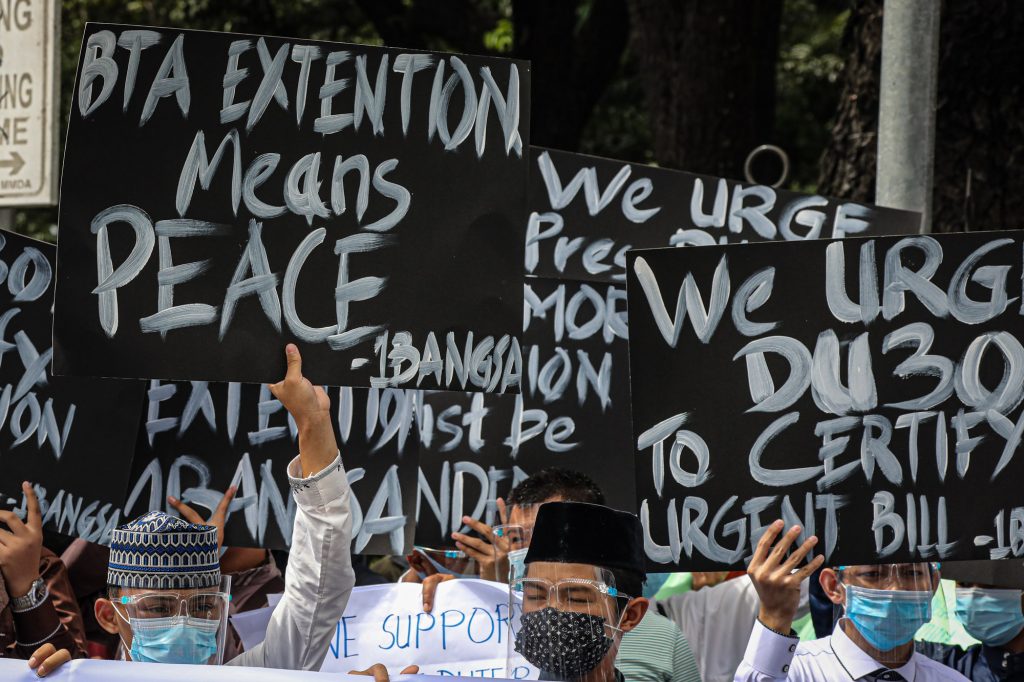
Calls for the extension of the transition period for the Bangsamoro Autonomous Region in Muslim Mindanao for another three years, or up to 2025, continued to snowball this week as legislators debated on the issue.
A group of Muslims held a demonstration outside the House of Representatives in Manila on February 16 to call for the extension of the term of the interim regional government.
The group urged legislators to amend the Bangsamoro Organic Law to extend the three-year transition period to June 30, 2025.
Congress is currently hearing this week several bills proposing the extension of the transition period.
The protesters, however, pointed out that considering the limited session days in Congress before it adjourns on June 4, “there is a need to certify the pending bills as urgent.”
The group calling themselves the Federation of Bangsamoro Coordinating Council of the Philippines commended the “significant accomplishments” of the government in implementing the peace agreement in Mindanao.
“We believe that the [transition body in the region] and the national government will be able to accomplish more and uplift the quality of life of the people on a massive scale if they will be given additional time to implement … much needed institutional reforms,” read the group’s statement.
The call for the extension of the transition period for the regional body has earlier got the support of Cardinal Orlando Quevedo, retired prelate of Cotabato.
“The reasons are indisputable,” he said, citing the pandemic that “made it impossible for the [transition body] to have regular face-to-face sessions.”
The prelate said security issues posed by radical armed groups also prevented freedom of travel for officials of the Bangsamoro Transition Authority to perform their tasks.
“The constraints of time are simply insurmountable,” said Cardinal Quevedo.
The mandate of the Bangsamoro Transition Authority will expire on June 30, 2022.

“The Bangsamoro Transition Authority will surely not be able to complete its mandate within the period of transition,” said the cardinal.
The retired prelate said several major issues in the fledging Bangsamoro region have yet to be resolved, including the status of private sectarian education, the decommissioning process involving members of the Moro Islamic Liberation Front, the setting up of the Office of Settler Communities, and the demarcation of the ancestral domain of the indigenous peoples, among others.
He said it is not possible to establish within the allotted transition period “a new political culture” within the Bangsamoro that would be ruled by the principles of “transparency, accountability and efficiency.”
He warned that the national elections in 2022 “would simply erode whatever fragile gains” the transition body would have obtained during the period.
The Bangsamoro Autonomous Region in Muslim Mindanao turned two years old on January 21 after it was created in 2019 following the ratification of the Organic Law for the BARMM, popularly known as the Bangsamoro Organic Law.
The law is anchored on the Comprehensive Agreement on the Bangsamoro, the final peace deal between the government and the Moro Islamic Liberation Front.
President Rodrigo Duterte has earlier expressed support for the extension of the transition period.
Source: Licas Philippines
0 Comments